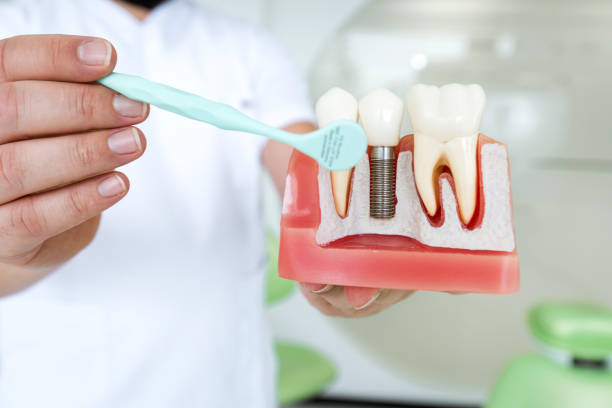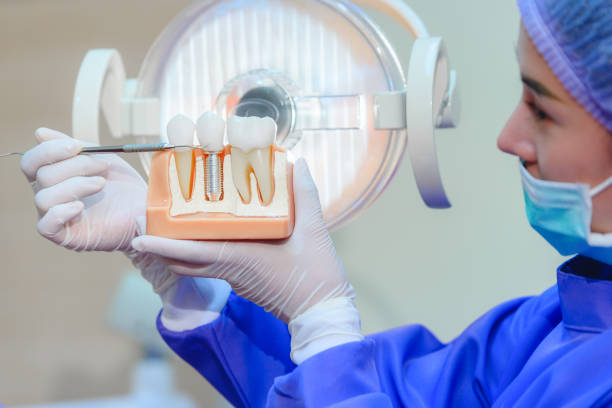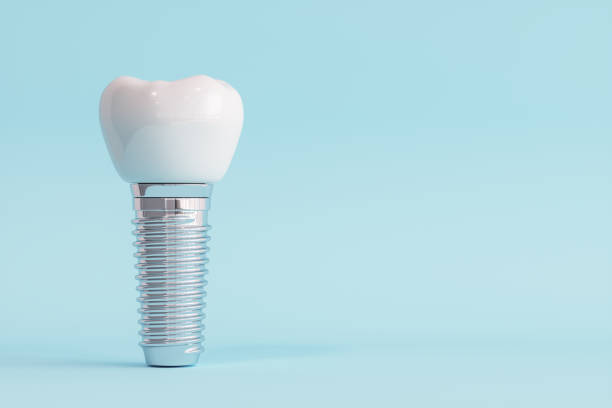By Dr. Jaime R. Estrella, DDS – TruSmile Dental Implant Center
Dental implants are one of the most durable and long-lasting tooth replacement solutions available today. However, like your natural teeth, they still require daily care and maintenance to stay healthy and functional.
At TruSmile Dental Implant Center, we want your investment in your smile to last a lifetime. Here’s everything you need to know about how to properly care for your dental implants.
Why Implant Care Matters
While dental implants are resistant to decay, the surrounding gums and bone are still vulnerable to infection and inflammation—especially peri-implantitis, a condition similar to gum disease. Without proper maintenance, even the best-placed implants can fail over time.
A study published in the Journal of Clinical Periodontology showed that peri-implantitis can affect 10% to 20% of implant patients and is a leading cause of implant failure [1].
Daily Oral Hygiene for Implants
- Brush Twice Daily: Use a soft-bristled toothbrush and low-abrasive toothpaste to avoid scratching the implant or restoration surface. Electric toothbrushes are safe and often more effective at reducing plaque [2].
- Floss Daily: Use implant-safe floss or an interdental brush designed for implants to clean around the base of the crown or bridge. Water flossers can also help remove debris under fixed prosthetics [3].
- Rinse with Mouthwash: Use an antimicrobial mouth rinse (without alcohol) to help control bacterial growth and maintain healthy gum tissue.
Professional Cleanings and Checkups
Even with great home care, professional maintenance is key. We recommend:
- Dental checkups every 6 months
- Implant-specific cleanings using non-metal scalers to avoid scratching the implant
- Periodic X-rays to monitor the health of the bone and surrounding tissue
According to a long-term study published in Clinical Oral Implants Research, patients who maintained regular dental visits had significantly higher implant survival rates than those who did not [4].
Avoid These Common Mistakes
- Don’t smoke: Smoking greatly increases the risk of implant failure due to poor blood flow and delayed healing [5].
- Don’t bite hard objects: Avoid chewing ice, hard candy, or using your teeth as tools.
- Don’t neglect surrounding teeth: Healthy teeth and gums support implant longevity. Gum disease in other areas of your mouth can spread to implant sites.
Specialized Tools for Implant Care
Consider using these tools for optimal maintenance:
- Interdental brushes: Designed to clean around implant posts and prosthetics
- Water flossers: Especially helpful for cleaning under bridges and hybrid dentures
- Rubber tip stimulators: Promote gum health around the implant
Ask us at your next appointment which tools are right for your specific case.
Signs of Implant Trouble
Call your provider if you notice:
- Redness or swelling around the implant
- Bleeding during brushing or flossing
- Loose-feeling implant or restoration
- Persistent bad breath or taste
Early intervention can prevent bigger problems down the road.
Final Thoughts
Dental implants can last decades—but only with proper care. At TruSmile Dental Implant Center, we equip our patients with the tools and knowledge to protect their investment for life.
If you’re unsure about your implant hygiene routine or it’s been a while since your last checkup, schedule an appointment today. Together, we’ll ensure your smile stays strong, healthy, and beautiful for years to come.
References:
- Derks, J., & Tomasi, C. (2015). Peri-implant health and disease: A systematic review of current epidemiology. Journal of Clinical Periodontology, 42(Suppl 16), S158–S171.
- Faggion, C. M., et al. (2014). The effectiveness of powered toothbrushes compared to manual toothbrushes in periodontal patients: A systematic review. Journal of Periodontology, 85(5), e149–e158.
- Sahrmann, P., et al. (2019). Effect of a water flosser on plaque, bleeding and gingival inflammation in patients with implants: A randomized controlled trial. Clinical Oral Implants Research, 30(5), 429–436.
- Schou, S., et al. (2006). Maintenance of implant-supported restorations: A review. Clinical Oral Implants Research, 17(Suppl 2), 139–147.
- Chrcanovic, B. R., et al. (2015). Smoking and dental implants: A systematic review and meta-analysis. Journal of Dentistry, 43(5), 487–498.



